Related Research Articles
The St Mark Passion, BWV 247, is a lost Passion setting by Johann Sebastian Bach, first performed in Leipzig on Good Friday, 23 March 1731 and again, in a revised version, in 1744. Though Bach's music is lost, the libretto by Picander is still extant, and from this, the work can to some degree be reconstructed.
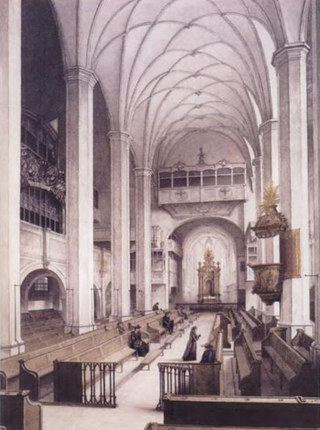
Wer weiß, wie nahe mir mein Ende?, BWV 27, is a church cantata by Johann Sebastian Bach. He composed it in Leipzig for the 16th Sunday after Trinity and first performed it on 6 October 1726.
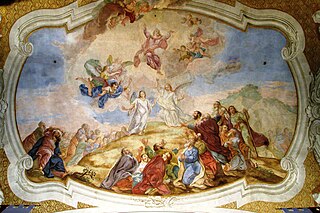
Gott fähret auf mit Jauchzen, BWV 43, is a church cantata by Johann Sebastian Bach. He composed it in Leipzig for the Feast of the Ascension and first performed it on 30 May 1726. It begins with a quotation from Psalm 47.
Klaus Mertens is a German bass and bass-baritone singer who is known especially for his interpretation of the complete works of Johann Sebastian Bach for bass voice.
Kurt Huber is a Swiss tenor for concert and Lieder.

Münchener Bach-Chor is a mixed choir for concert and oratorio in Munich. Performances, international tours and recordings with Karl Richter and the Münchener Bach-Orchester made the choir internationally known.
Dorothee Mields is a German soprano concert singer of Baroque and contemporary music.
Ursula Buckel was a German soprano singer, known for singing works of Johann Sebastian Bach.
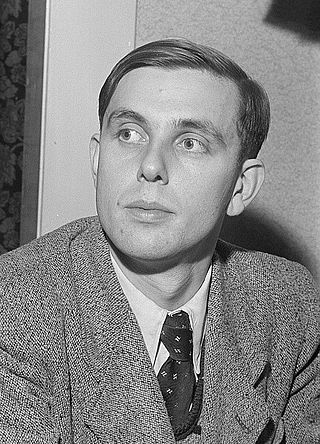
Diethard Hellmann was a German Kantor and an academic in Leipzig, Mainz and Munich.

Singet dem Herrn ein neues Lied, BWV 90.2, BWV 190a, is a cantata by Johann Sebastian Bach. The work was written in 1730 in commemoration of the Augsburg Confession.

Gelobet sei der Herr, mein Gott, BWV 129, is a church cantata by Johann Sebastian Bach. It is a chorale cantata performed on Trinity Sunday 8 June 1727 in Leipzig. Rediscovery of the printed libretto of the cantata in the first decade of the 21st century led to a re-appraisal of prior assumptions regarding the early performance chronology of a few cantatas, including this one.
The Dresdner Kammerchor is a mixed chamber choir which was founded in 1985 by Hans-Christoph Rademann in Dresden and is still conducted by him. The semiprofessional ensemble of about 40 singers has appeared internationally.

L'arpa festante is a German chamber orchestra, specializing in the revival and performance of unknown works, especially from the Baroque era. It was established in Munich in 1983 by Michi Gaigg, who also led the ensemble as concertmaster until 1995. The ensemble takes its name from Giovanni Battista Maccioni's dramatic cantata L'arpa festante which was first performed in 1653, inaugurating what was to become the Bavarian State Opera.
Bekennen will ich seinen Namen, BWV 200, is an arrangement by Johann Sebastian Bach of an aria from Gottfried Heinrich Stölzel's passion-oratorio Die leidende und am Kreuz sterbende Liebe. He scored it for alto, two violins and continuo, possibly as part of a cantata for the feast of Purification. He probably led the first performance around 1742.
Martin Lattke is a German tenor, performing as a soloist and former member of the ensemble amarcord.
Kurt Widmer was a Swiss baritone and voice teacher, who appeared and recorded internationally. He focused on concert singing, especially of oratorios from the Romantic period. His recordings cover a repertoire from medieval mass to world premieres, such as song cycles by György Kurtág, and received international awards. He taught at the City of Basel Music Academy from 1968, influencing notable soloists including Nuria Rial and his son, Oliver Widmer.
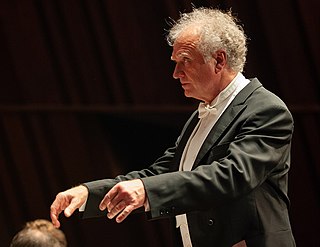
Ralf Otto is a German conductor, especially known as a choral conductor and academic teacher. He founded the Vokalensemble Frankfurt, focused on contemporary music and winning competitions including Let the Peoples Sing. Since 1986, he has been director of the Bachchor Mainz, with a tradition of performing Bach cantatas in broadcast church services. He added late romantic and contemporary works to their repertoire and made international tours with them. They made world premiere recordings of some cantatas by Bach's oldest son, Wilhelm Friedemann Bach, among other recordings. Otto was professor of choral conducting at the Folkwang Hochschule from 1990 to 2006, when he took the same position at the Hochschule für Musik Mainz.
Gerhard Müller-Hornbach is a German composer, conductor and music teacher.
Anne Bierwirth is a German contralto, focused on concerts and recordings of sacred music, appearing internationally. Besides the standard repertoire such as Bach's Christmas Oratorio, she has explored rarely performed Baroque music such as Bach's St Mark Passion and Reinhard Keiser's Passion oratorio Der blutige und sterbende Christus.
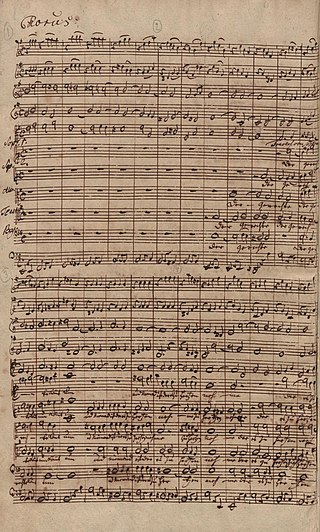
Der Gerechte kömmt um, BWV 1149, is a motet for SSATB singers and instrumental ensemble, which, for its music, is based on the five-part a cappella motet Tristis est anima mea attributed to Johann Kuhnau, and has the Luther Bible translation of Isaiah 57:1–2 as text. The arrangement of the Latin motet, that is, transposing it to E minor, adjusting its music to the new text, and expanding it with an instrumental score for two traversos, two oboes, strings and basso continuo, is attributed to Johann Sebastian Bach. The setting is found in a manuscript copy, likely written down in the 1750s, of Wer ist der, so von Edom kömmt, a Passion oratorio which is a pasticcio based on compositions by, among others, Carl Heinrich Graun, Georg Philipp Telemann and Bach. Likely Der Gerechte kömmt um existed as a stand-alone motet, for example for performance on Good Friday or at a funeral, before being adopted in the pasticcio.
References
- ↑ ""Im Spiegel der Angst" – Uraufführung von Müller-Hornbachs Luther-Oratorium in Mainz". Neue Musikzeitung (in German). Retrieved 30 October 2018.
- ↑ "Mainzer Bachchor: Beim Naxos-Label erscheinen bis 2019 vier große Vokalkompositionen des Barockmeisters". Allgemeine Zeitung (in German). 9 February 2018. Retrieved 7 June 2023.